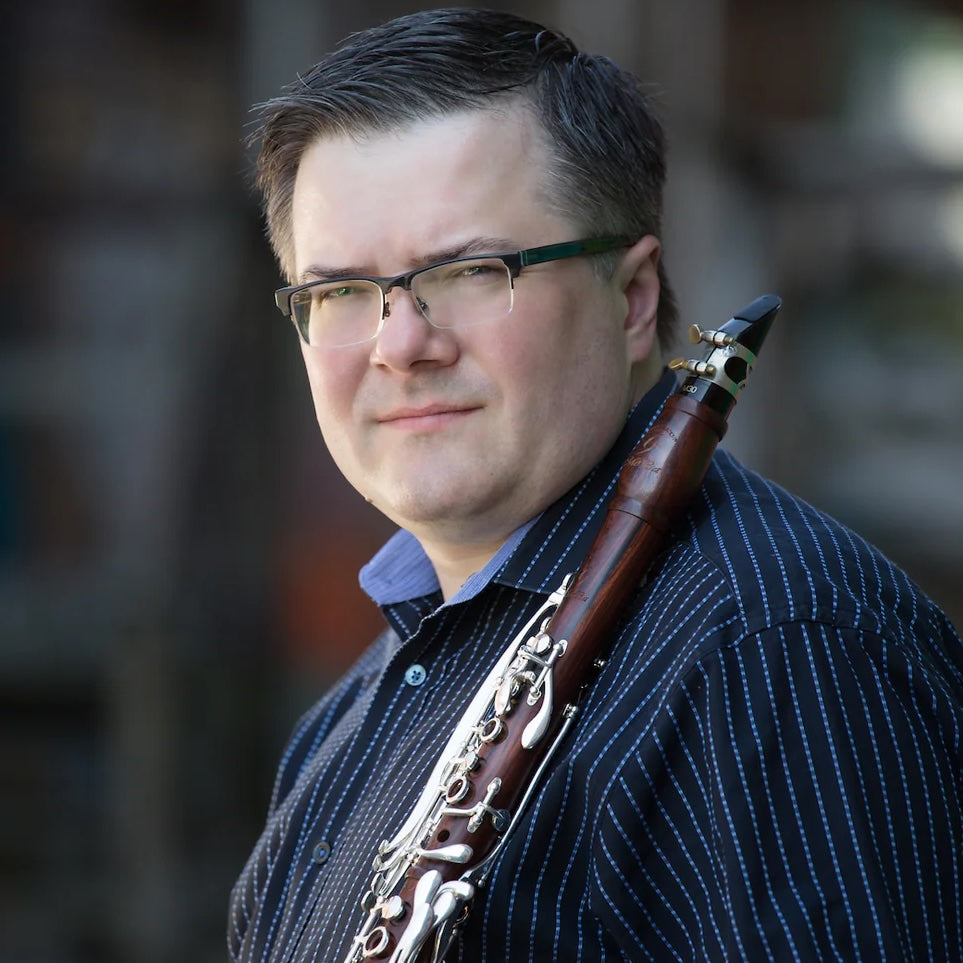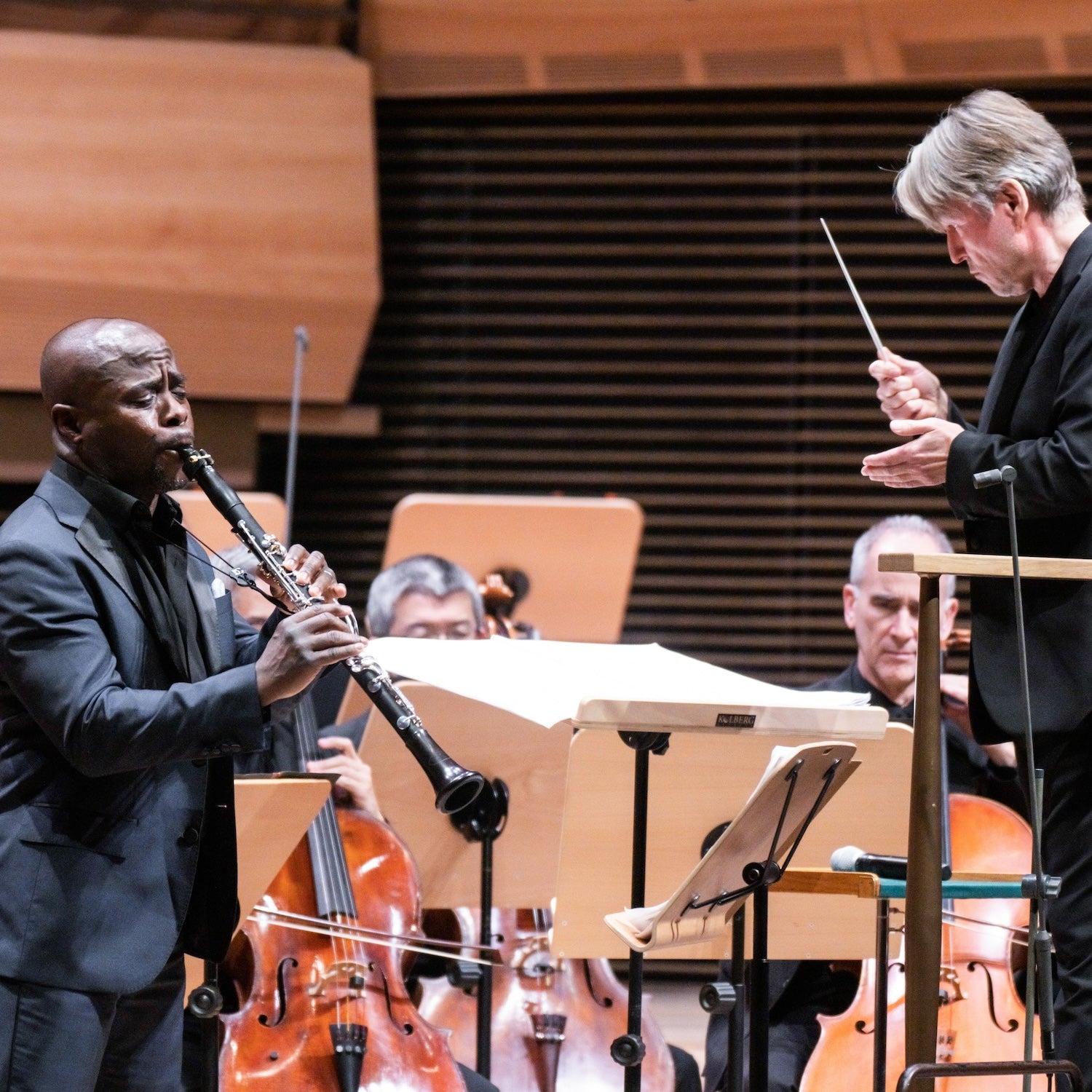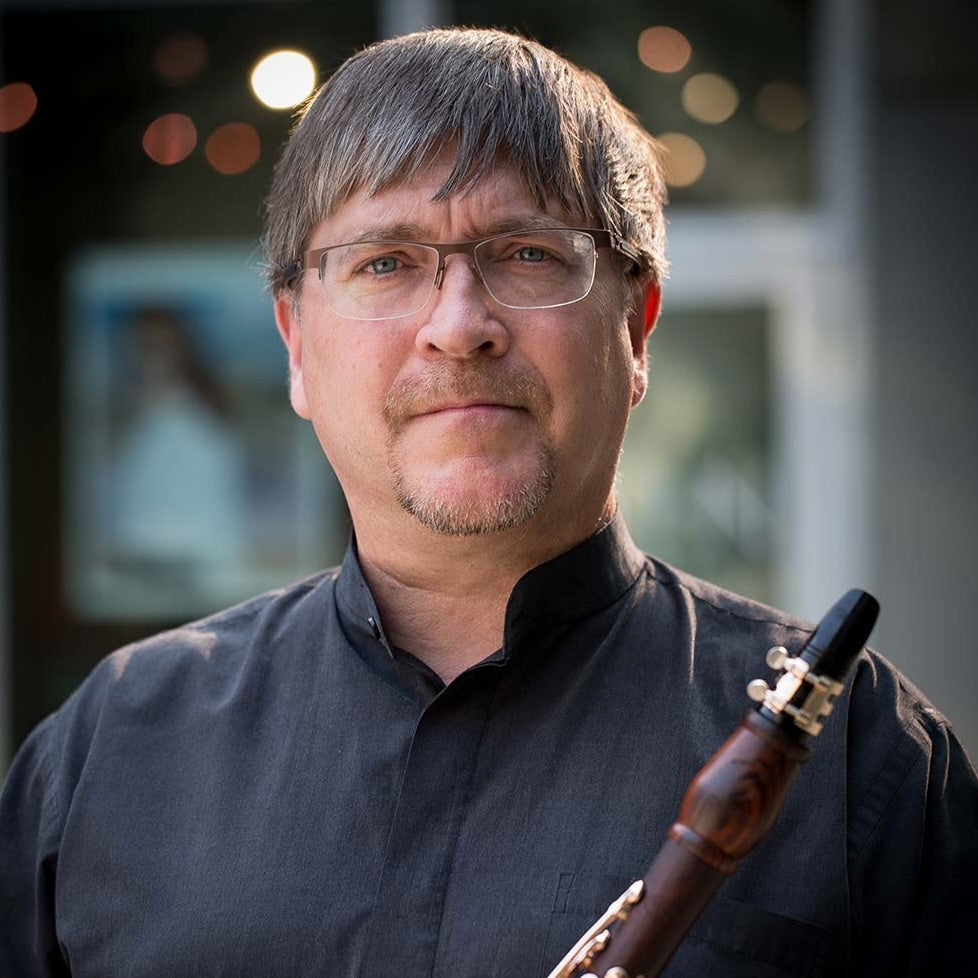As with any creative pursuit, even professional ones, there comes a point in any day when the art is put away and the rest of life must be attended to. What happens, though, when your frequent artistic collaborator is also your spouse? Where does the music end and the rest of life begin? Is there such a thing as work-life balance?
When I first reached Chad Burrow by phone in his office at the University of Michigan, he expressed considerable doubt that we’d have much to talk about. He explained that he understood I’d be writing about collaborating with one’s spouse, “but I'm not sure if there’s enough material there to generate an article,” he said, “any more than if you were just asking about collaboration in general. I don't know that it’s drastically different when it’s one’s spouse.” My turn to be skeptical. In my experience, collaboration — no matter the medium(s) — always makes for good stories.
Chad and his wife, pianist Amy I-Lin Cheng, met when they were in graduate school at Yale in 1999. Chad needed a pianist for a recital, and the original person he was assigned backed out, so he had to find a replacement. The replacement ended up being Amy. Though they’d been acquainted for several months at that point, they really started getting to know each other through working together.
Perhaps this is the detail that led to his assertion that their story wouldn’t be particularly interesting — Chad and Amy have always played together. It’s just a part of who they are as a couple. Eventually they made their musical relationship official by forming the duet Duo Clarion, the founding of which they backdated to that first recital performance together at Yale. They married in 2002.
Back on the phone, I pressed Chad about how working with his spouse simply must be different, at least in a work-life balance way, from his work within academia or with an orchestra. Mustn’t it be harder — or easier, perhaps — to draw boundaries with one’s spouse?
“We live and breathe teaching and performing,” he replied. “Obviously, we have our two children, we have our family, but it’s all sort of organically interwoven. Where does work and entertainment and family life begin and end? It all sort of blends together in this collage. It’s more our commentary to each other, when we have requests or we don’t particularly like something in rehearsal, maybe we’re slightly more direct with each other.”
I admitted I’d assumed it would be the other way around: that with your spouse, you’d always have your eyes on the prize of domestic peace and might choose to fight your professional battles differently. Not so for Chad and Amy.
“It’s the people that you don’t know well that you sugarcoat or you’re more careful with how you interact. Just as an example: if I’m playing with someone in the orchestra and there’s something that’s out of tune, I’m going to say, ‘Would you mind going through this passage with me? I’m having trouble finding the pitch.’ I might even sort of take the blame for a problem, whether it’s my issue or not. Whereas if it’s something with my wife, I might say something to the effect of, ‘We're not together there, so what are you doing?’
“You can joke and you can imagine all kinds of fights breaking out, but for the most part, it’s all very civil. I know that if my wife is critical of something that I do or if I’m critical [of her], at the end of the day it’s not an issue with the person not caring about you. It’s okay, you have a disagreement over something. It doesn’t translate beyond that.”
I started to come around to the idea that this could actually seem totally normal. Of course, managing two music careers hasn’t been easy for either one of them.
Amy finished at Yale first and went on to pursue her doctorate at the New England Conservatory in Boston while Chad remained in New Haven, Connecticut, to complete his degree. This was the beginning of two years of long-distance dating, first between Boston and New Haven, then at even greater distance after Chad graduated and took the Principal Clarinet position in the Oklahoma City Philharmonic. He was also offered an academic position at Oklahoma City University. He described that time: “To be offered those positions . . . I was twenty-four at the time and didn’t have a doctorate. I thought, ‘Well, let’s go get some real-life experience.’ My wife had one more year left on a doctorate.” So then the couple commuted between Boston and Oklahoma City.
As luck would have it, about a year after Chad moved west, Amy was able to get a job at Oklahoma State University, about an hour north of Oklahoma City. After four years there, she took a position on the same faculty as Chad, and finally they were back to both working and living together.
Three years later, it was time to move on, and the couple again had to weigh their professional and personal priorities, this time with their toddler son in the picture. They decided that an offer to Chad of a tenure-track position at the prestigious University of Michigan was too good to pass up, so Amy would move with him to Michigan and would find her way once she got there.
“For [Amy], it was a few years before she really got something significant,” Chad told me. “Frankly, I think she had to be rather humble just to help make ends meet. She had to put goals and career aside, to some extent. I know that at times it wasn’t easy for her, but because she works hard and is really exceptional — and this is her husband speaking — she came to the notice of a number of my colleagues who started engaging her to perform. Then she started performing with a group in Detroit every now and then, the Detroit Chamber Winds and Strings. The piano faculty here [at Michigan] got to know her, then there was an opportunity for her to teach a graduate course in chamber music for pianists. She started coaching chamber music, started teaching a bit, and now after being here in Ann Arbor for seven years, she has gone from basically an entry-level lecture position to a full-time contract. She's currently heading up all of the piano chamber music here at the University of Michigan.”
Talking about the decisions they’ve made over the last eighteen years, Chad paused. “I suppose maybe there’s more here for an article than I thought.”
Indeed.
Chad Burrow is recognized as one of the premiere clarinetists of his generation. He has appeared as a soloist and chamber musician in concert halls across the globe. In 2009, he was appointed to the clarinet faculty of the University of Michigan, where he teaches clarinet and chamber music, and serves as the director for the Michigan Chamber Players. Additionally, he serves as co-artistic director for the Brightmusic Society of Oklahoma and is on the faculty of the Sewanee Summer Music Festival and Alpenkammermusik Festival in Austria. Chad is the principal clarinetist with the Ann Arbor Symphony and regularly performs with the Michigan Opera Theatre Orchestra. In addition to his own schedule of performances, Chad is the clarinetist for Duo Clarion, formed in 1999 at Yale University with pianist Amy I-Lin Cheng. Duo Clarion’s work has been recorded and released by Albany Records, CD Baby, and Wei Studios in Taiwan. Violinist Sean Wang joins Duo Clarion to form Trio Solari. The trio has had a regular touring schedule around the world since 2006. Chad holds a Bachelor of Music degree from Northwestern University where he was a student of Russell Dagon, and a Master of Music degree from Yale University, where he was a student of David Shifrin. Chad Burrow serves as an artist for Backun Musical Services and Vandoren. He plays exclusively on Backun, MoBa Clarinets.



